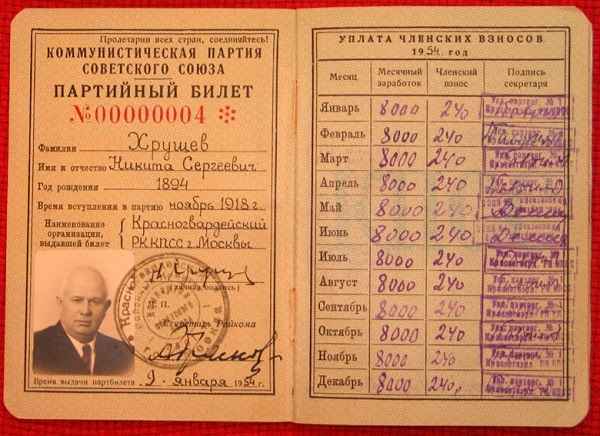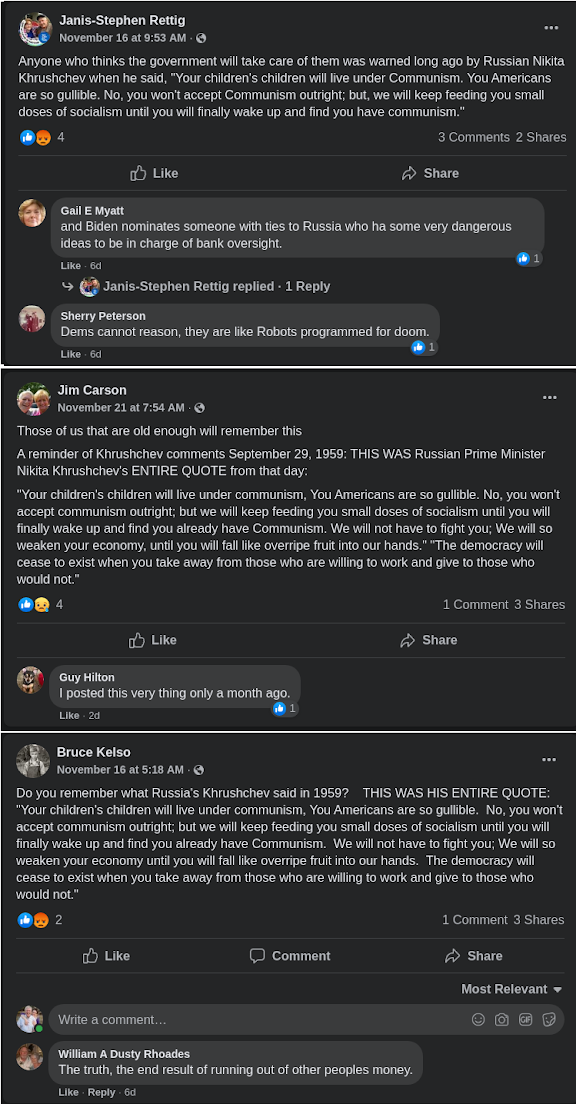Back in the mid-70's, I spent a lot of time in the Russian-language holdings at Carleton University's library. Somehow I came across a book entitled The Atheist's Companion. It was composed of encyclopedia-style articles on the world's religions, along with assessments of their inadequacies in Marxist terms.
Having recently discovered Quakers at the time, I flipped through the book to see if it said anything about us. It did! To my amusement, it listed a lot of our positive features, and then abruptly dismissed our "reactionary morality" as "sterile."
Thanks to the Internet, I found the text of this propaganda classic, so you can see this assessment for yourself:
The Quaker sect arose during the English bourgeois revolution among the urban poor, on the basis of Anabaptist and other heresies, as a result of disillusionment with a revolution that gave nothing to the people. Its founder George Fox (1624-1691) came to the conclusion that the truth is not in the sacred books, but in the hearts of people. Truth should be sought in the “inner light” that illuminates a person and that testifies to the presence of Christ in the believer. The doctrine of the "inner light", which is placed above the scriptures and the church, is the main point of Quakerism.
The term "Quakers" means "tremblers", the name given in mockery, due to the convulsive movements, seizures, which in early times accompanied Quaker prayers. Quakers deny any specific worship and sacraments, rites, clergy. Quaker meetings take place in empty rooms; silently, with covered heads, they sit in anticipation of being illuminated by the light from above, until some member of the community will feel "full of light" and will begin to preach. Singing and music at Quaker meetings are not permitted. Marriages between Quakers are accomplished with a simple promise of fidelity in the presence of elders. Burials take place without any ceremony. Quakers are characterized by a rejection of luxury; at first they did not allow themselves theatre, dance, or sports. Quakers place a high value on the independence of the individual, and therefore they do not remove their hats before anything or anyone; they deny titles and address everyone as “thee” and “thou” [not the plural "you" to individuals]; they do not kneel.
Quakers teach that one should not count on changing the people at the head of the government in order to make things better; improvement can only be expected from the spirit. They deny violence, war, oaths, and preach “non-resistance to evil”; they teach about universal brotherhood; they widely practice charitable work and religious tolerance. Quakers’ reactionary morality, which replaces social revolution with moral evolution, is sterile.
Each community meets once a month for moral discipline, to provide advice, and to resolve any disputes between individual members. The highest authority is the yearly Quaker meetings of a given country, below that level are the quarterly meetings of several congregations.
At first, Quakers were cruelly persecuted. For example, in 1656-1658, 9,000 Quakers in England were imprisoned. The Toleration Act of 1689 put an end to the persecution of Quakers in England. In 1682, the Quaker Penn bought the land on the Delaware in North America from the English government, and founded the Quaker colony of Pennsylvania, but it was not until 1724 that the Quakers ceased to be persecuted in other colonies of North America. The Quakers advocated for the freedom of blacks, some of the Quakers participating as armed soldiers in the war between the North and the South. In 1957 there were 180 thousand Quakers, of which 120 thousand were in the USA, 22 thousand in England, 20 thousand in East Africa. Quakers advocate peaceful coexistence.
Setting aside our reactionary morality for the moment, you can draw your own conclusions about the selectivity and uniformity of this description of Friends, and its compressed timeline. I wonder why the words "Friend," "Society of Friends," "Friends church" never appear.
You may have noticed that the word "spirit" is not capitalized, but in Soviet times publishers also didn't capitalize "God." (Dostoevsky gave God a capital G, but his Soviet-era publishers did not.)
"Peaceful coexistence" isn't just an abstract term. It was a policy and a propagandists' talking point granting that the NATO countries and the USSR could live together peacefully, and challenging the Western countries to make the same declaration. Of course, one could say that "peaceful coexistence" might be an example of a substitution of "moral evolution" for "social revolution."
One final note: this is the second edition of The Atheist's Companion. Nobody apparently thought to do any fact-checking in revising the first edition from 1959. As it turns out, the 1961 entry on Quakers is almost identical to the 1959 edition, with no corrections. There are two interesting changes:
- In 1959, in the first paragraph, there's a bit more to the description of George Fox. "George Fox (1624-1691), having immersed himself in the Holy Scriptures, came to the conclusion...."
- The 1959 edition also doesn't have that final sentence in the 1961 edition's third paragraph—nothing about our bourgeois morality. In fact, the 1959 edition, however inadequate, is 100% positive about us. I can't help wondering whether Nikita Khrushchev's anti-religious campaign at the time affected the book's editors.
To get contemporary descriptions of Quakers in Russian language, aside from our own site, you can get excellent treatments on Russian Wikipedia, and in the Orthodox Encyclopedia.
Speaking of descriptions of Friends in Russian, see this exercise from a recent Woodbrooke study course in Friends, conducted in Russian. (Here's the Russian-language original of the exercise.)
Following up on last week's link to Russian Communists' rejecting Khrushchev's denunciation of Stalin, here's Alexey Uvarov's article on "Rehabbing Stalin."
The United Nations on conditions in the Gaza Strip and the West Bank.
Elder Chaplain Greg Morgan on his threescore years and ten, and ours.
Why Micah Bales loves the "divergent" Psalm 82.
Please take a look at my five questions on racism and racists.
Austin John is "Sick and Tired"...












